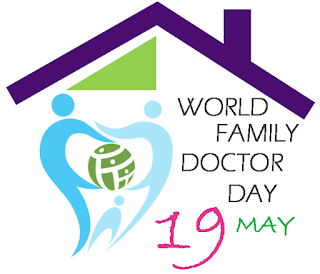On Thursday, May 19th, the
World Organization of Family Doctors (WONCA) will celebrate
World Family Doctor Day, a day that since 2010 has highlighted the roles and contributions of family physicians in health and health care systems worldwide. The term "global health" has evolved from being used primarily to describe
volunteer medical work in developing countries to a broader concept that recognizes the easy transmission of infectious diseases across continents and international boundaries (e.g., outbreaks of Ebola and
Zika virus) and the presence of
international refugee and immigrant populations with specific medical needs
in the "backyards" of the United States. In a
2015 American Family Physician editorial, my Georgetown and
Medscape Family Medicine colleague Dr. Ranit Mishori and Dr. Jessica Evert explained why incorporating global health experiences into Family Medicine training and practice "matters now more than ever":
Global health exposure internationally and locally helps develop a broader health system perspective, greater attention to the social determinants of health, and an understanding of population health concepts. Engaging in global health can bolster cross-cultural competencies, along with the desire to work in resource-poor settings. Additionally, it can strengthen skills and passion to care for underserved populations domestically. A few studies have even suggested an association between global health experiences and an increased interest in primary care.
Dr. Kyle Hoedebecke wrote a blog post last year about
why new physicians should care about global health and hosted an episode of "
Family Medicine On Air" directed at family medicine interest groups (FMIGs) in the U.S. This year, one of my former Health Policy Fellows, Dr. John Parks, whose research on the
global landscape of family medicine training informed the AAFP's
World Health Mapper online tool, will
host a live Google Hangout at 11 AM Eastern on World Family Doctor Day. Students can submit questions for Dr. Parks, who is now a faculty lecturer in the Department of Family Medicine at the University of Malawi College of Medicine, by e-mailing their
FMIG Network Regional Coordinator by Wednesday, May 18th.
**
This post first appeared on the
AFP Community Blog.













